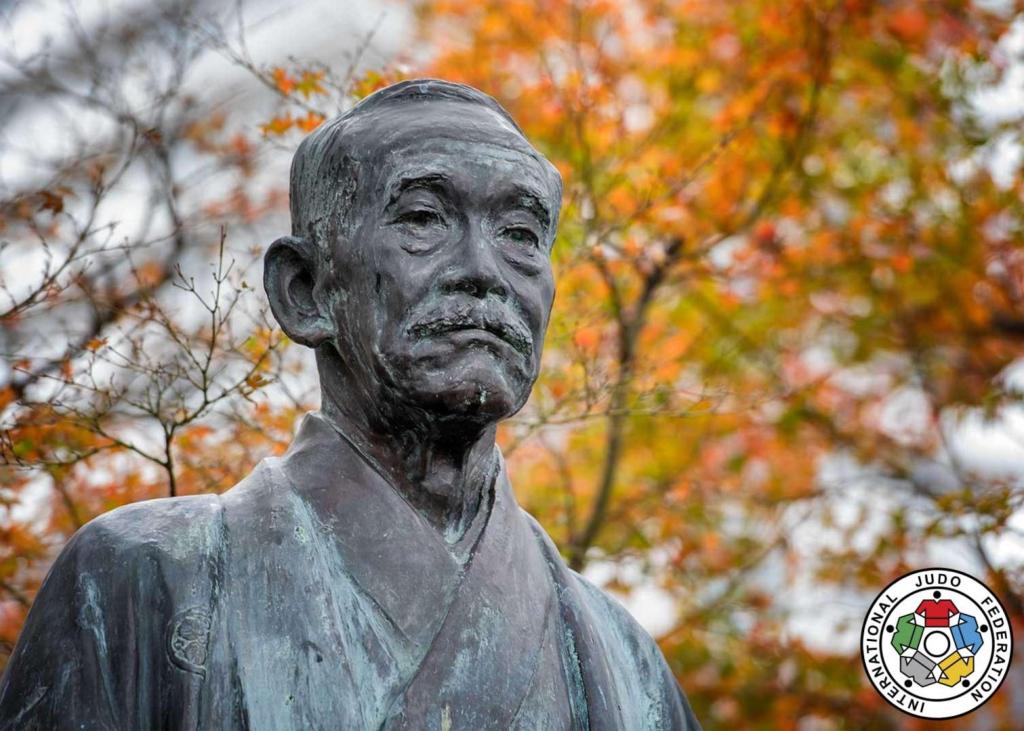Associate Professor in Japanese Language and Civilisation from the University of Toulouse Jean Jaurès and member of the EJU Scientific Commission, Mr Yves Cadot (6th Dan), has translated original text from Jigoro Kano. We will continue with the part two for the attention of judo specialists.
The text translated firstly in to French – with the link available in his quote directly below – and then in to English has allowed a further insight in to the workings of Jigoro Kano.
“Because many of us are frustrated in these days of closed dojos, deprived of the physical link to our discipline, to others, and because judo teaches us to transform situations into opportunities, I suggest we take this opportunity to take an account of our own practice through the writings of Kano Jigoro.
The idea is to offer every day, until the reopening of the dojos, a quote, a few lines or pages, raw, without comments (but sourced!) to feed our knowledge, feed our thinking, cultivate us. You will find them, if possible in the early morning, in my Hypotheses.org research notebook (Le dire en corps), in the section ‘Une journée, un texte’.”
Part Two: For the attention of judo specialists.
“What is then important as a tendency for a teacher is to encourage practitioners, as long as they have had the necessary rest, to practice as much as possible. As, in school dojo in particular, we generally train a large number of people in a short time, we must try to make practitioners work one after the other without leaving in the dojo free space as long as there is no danger. Otherwise, for lack of time, it is difficult to make everyone without exception exercise enough.
In this situation, what I want the teachers to pay particular attention to is the choice of the partner. Indeed, the couple formed by so and so can be dangerous while with such other person, for both, it will be, for training, the ideal partner, so this choice requires a lot of consideration. This is the appropriate method to safely train large numbers of practitioners over a given time even when teaching beginners collectively.
What I have exposed so far mainly concerns technical exercise, but it is, at the same time, a method of strengthening the body and of attack-defence training. So we teach that you have to do this technical exercise seriously, and this seriousness is an essential component of mind training. If you don’t exercise seriously, the effect as a physical education is weak and the results as an attack-defence method are also bad. And then, exercising seriously on a daily basis makes this quality of seriousness develop by itself and, ultimately, you become someone who does this in everything. It is no exaggeration to say that if you are a teacher capable of putting this in place, you are already half equipped with the necessary skills as a teacher.
When the prestige of the man behind the teacher is insufficient, the practitioners easily behave badly in the dojo and come to chat or joke but, if it is satisfactory, they are rigorous and naturally serious. This is why the teacher must permanently preserve this prestige. To do this, we must first recognise the value of the man who is the teacher. However, as this value depends on his personality and temperament, and that he should not have technical shortcomings either, the teacher must apply himself tirelessly to his own training. Then, discerning good from bad, right from wrong, he has to teach methodically and fully assume this responsibility. That the prestige cannot be lacking in the teacher is obvious, but he must also be kind. Prestige without kindness certainly generates respect but also fear, and this does not allow attachment. If the teacher has a good heart, he can consider things by putting himself in the practitioners’ place, and the latter can frankly confide in him. It is only then that it becomes possible, at the same time as they are taught the technique, to move them and guide them towards good. This is why the teacher must be determined to preserve his prestige and that he must also, endowed with sympathy, be infinitely kind.”
This specific text is available in both French and Japanese here. Traduction de travail de : Kanô Jigorô 嘉納治五郎. “Jūdō no senmon-ka ni tsugu 柔道の専門家に告ぐ (A l’attention des spécialistes du judo)”. Jūdō 柔道. février 1917.
Related Articles – WORKING TRANSLATION OF JIGORO KANO
Part 1
Part 2
Part 3
Part 4
Part 5
Author: Sören Starke




